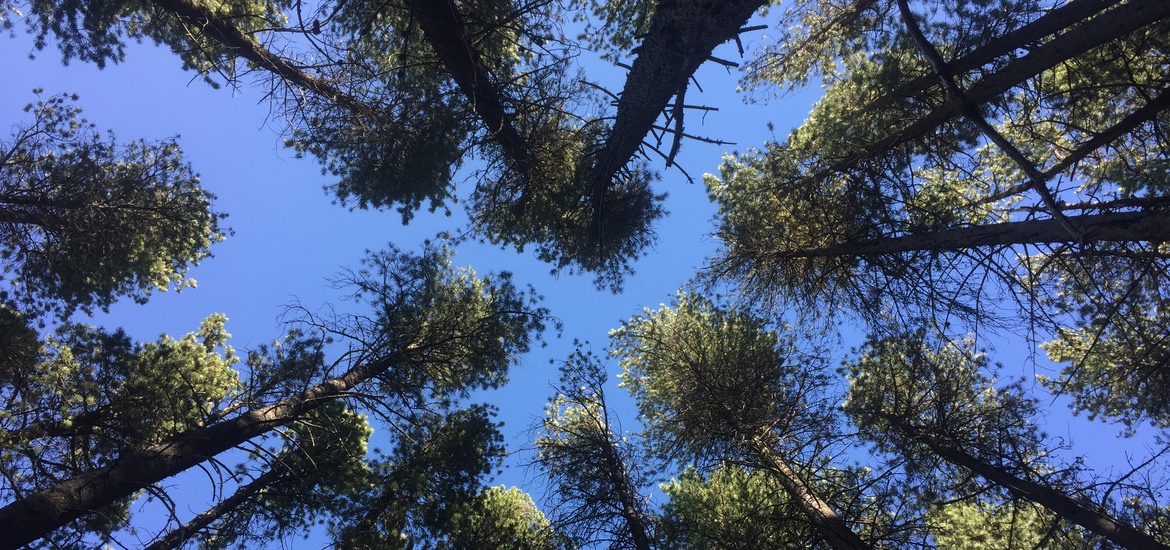Kristin Catherwood Mantta, Director of Living Heritage
This coming Thursday, February 29th, I will be moderating a webinar on Living Heritage and Sustainable Livelihoods with my UNESCO Co-Chair, Agnieszka Pawlowska-Mainville from the University of Northern British Columbia. For more information about the Chair, you can visit our website here.
The webinar is part of a series in support of a SSHRC funded project, Northern Dialogues, which will include an upcoming conference in Whitehorse, YK and a forthcoming publication – the fourth iteration of the State of Rural Canada, published by the Canadian Rural Revitalization Foundation. The webinar series, as part of outreach activities supporting the project, “will generate dialogue on the theory and lived reality of remoteness and its implications for sustainable livelihoods in rural, northern, and Indigenous communities. The dialogue is intended to inform policy and development practice in and for communities through the exchange of insights from researchers, policy makers, practitioners, leaders, and community members.” (project website).
I am not a northern person, though, of course, what it means to be northern is entirely related to where you are in relationship to somewhere else. We, and our places, do not exist in isolation. While home is “here”, and as youngsters we often know only “here” as our reality, as time goes on, we grow an awareness of how we relate to others – our identity is oftentimes and in large part defined by how we perceive ourselves in relationship to external factors – other people, our station in life, our geography. And so it is with places – they are often understood not only, or even not much on their own terms, but rather in how they relate to other places.
So, growing up in southern Saskatchewan, I did not consider myself any kind of northerner. However, that perception changed the first time I drove through the northern United States, which to me is “south,” but to most of the contiguous US is “northern” and proudly identifies as such. It felt odd to be in places claiming their northern-ness when I came from even further north and yet, I considered myself a “southerner” by Saskatchewan standards. Crossing back over that border meant I was back in the “great white north”, but skirting the 49th parallel, I was still very much South of 60, and thinking about my home, and myself, in a different way from before.
My perception also shifts when I travel north in Saskatchewan. Growing up in a place where Regina was an hour north, Saskatoon was pretty far north, and Prince Albert was “the north.” But I’ve now heard both Saskatoon and P.A. referred to as “the south” in my community work in northern Saskatchewan. The first time I visited La Loche, I was as north as I had ever been. But looking at a map of Saskatchewan, I was only halfway up its current borders. And above that line, the massive swathe of land that is the Northwest Territories. So, what is it to be northern? Where does the gaze turn? On our travel expense sheets, a higher rate of mileage is paid out north of 54̊ latitude, which is roughly the Meadow Lake area, for reference.
Perhaps one thing that unites this question of northernness is its perception as “remote.” But again, remote from…where? Remote from centres of government? Remote from say, Regina – historically, a frontier outpost and considered at its founding and still to be remote from, say, Ottawa (though in its early days, Ottawa was remote from the bustling metropolises of Montreal and Toronto). So, does remoteness mean to be inland? What about the folks living in Cambridge Bay, Nunavut, Churchill, Manitoba, or Old Crow, Yukon? Those are coastal places, but still very much remote from…where? Capital cities? Population centres of trade and commerce? What it means to be remote is just as subject to personal perception and place-based interpretation as what it means to be northern.
To return to the subject of the upcoming webinar and the larger Northern Dialogues project, what do remoteness and northernness have to do with living heritage and sustainable livelihoods? I leave you with this question, formed out of a nascent theory Agnieszka and I have been incubating: What if remoteness is actually a boon when it comes to living heritage and sustainable livelihoods? What if being far from the centre – whatever and wherever that centre may be – is actually a good way to sustain traditional culture, or language, even? A recent CBC article about sustaining the Dene language, written by a former Heritage Saskatchewan collaborator, Louise BigEagle, makes that argument – and it’s one I have heard many times throughout the past several years I have spent travelling and learning about Saskatchewan’s myriad cultures and heritages. We talk about “up north” and “down south”. How do we perceive of ourselves in time and in place, and what are the benefits of living in a remote place? Considering this, the conference, the publication, and these webinars will grapple with these questions – what is northern? What is remote? I think it’s up to folks to make the assertion “yes, we are northern.” “No, we don’t consider ourselves remote” and for “us” from the “south” to listen and to learn from our northern neighbours and friends. How are living heritage and sustainable livelihoods linked, and how does remoteness affect that?
We touched upon these issues in our Covid-19 Culture living heritage project when Community Coordinator, Holly Toulejour, a Dene from La Loche, made a concerted effort to interview people living in northern Saskatchewan, taking care to interview both Cree and Dene people, from both the east and west side and from the “far north.” As she said, “We’re not all the same in the North – there’s no pan-Indigenous culture. There may be similarities, but we have our own distinct cultures and our own rich histories.” This is an important aspect of the Northern Dialogues project - to recognize the diversity of northern landscapes and cultures.
One of the speakers at webinar is Ranelle Sylvestre, Honouring Her Spark and Cultural Humility Facilitator at the La Loche Friendship Centre and a board member of Heritage Saskatchewan. She remarked at our AGM last week that the north is a large part of the province that people don’t often think about. She will represent her version of northernness as a member of Clearwater Dene First Nation this Thursday, along with Vincent Casey, Public Education Coordinator, Government of the Northwest Territories, Yellowknife, NT and Robert Spence, a community activist from Tataskweyak Cree Nation in Manitoba. I hope you will join the conversation with us. To register for the Northern Dialogues webinar series, click here.


